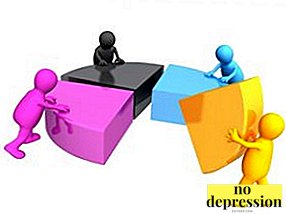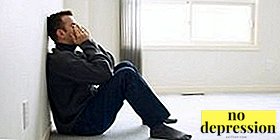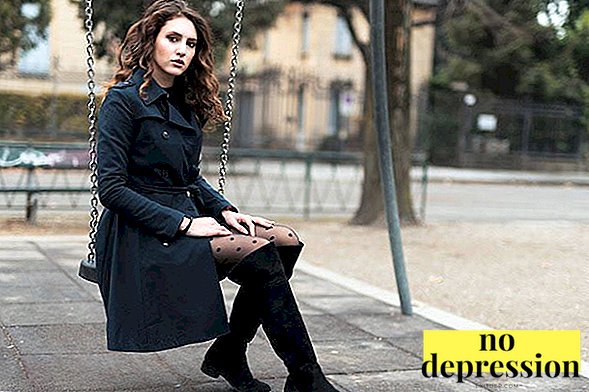Every individual goes through a process of socialization during his life.
is he becomes part of societysubject to social control.
This in a special way affects his psyche and behavior.
Basic concept

What is social behavior?
This term is understood human behavioral processesthat are related to his needs.
They appear as a reaction to the social environment. By subject becomes as one individual, and several.
Behavior is laid in the period of socialization. It has a different duration, but is usually several years. Experts are sure that instincts are identical in all peoplebecause they relate to biological phenomena, and the behavior is different.
It is formed when a person is in society, trying to adapt to it. Without this process, it will not work out. Being alone, a person can not become part of society.
As a result, several years later, one person turns out to be more open, successful, active in society, while the other barely copes with the goals set before him, and is closed to others.
Types and forms
Exists several types of such behavior:
- Mass: social movements;
- role-playing: the role of family;
- group: interest groups.

Also called behaviors by the nature of human relationships with other individuals. These include:
- prosocial: benevolent, intent to start cooperation;
- competitive: the desire to win at any cost;
- type A: irritability, aggressiveness;
- type B: positive attitude towards others.
Experts identify two forms: natural and ritual. The first is aimed at meeting their own goals, achieving their goals.
In its pure form, it does not fit social norms, has a natural character, but is based on social concessions.
Ritual is an inseparable cell of social life: individuals do not take into account that they are in the field of ritual interactions. They achieve the stability and strength of social structures due to this form of social behavior.
The society is trying with all its might to change the natural forms to ritual forms in order to immerse the individual into himself as much as possible. Thanks to this process there is a strong development.
Behavior regulation

Behavior is a wide system of social regulation.
Regulatory process flows during the assimilation of norms, rules, upbringing by a person.
A person learns to communicate with other people, to find a common language with them, to achieve their goals, but not to violate the norms and values of society.
It is important that everyone wants to be in society, to set up relationships, to find new connections. If you do not, the individual will not become part of it, will remain isolated.
Over time, each person is firmly established in the social world, falls into complex system of public relations. From a young age she learns how to behave, what things are unacceptable.
All of these factors become regulators of the social behavior of an individual. Based on certain rules, he corrects his behavior, improves, looking at others.
If he understands that he makes mistakes, he corrects it. Internal self-control and the fear of judgment lead to following the rules.
Definitions and forms of control

Social control - the continuous interaction of man and society.
it system of prohibitions, prescriptions, beliefs, ensuring compliance of the person to the samples accepted in a society.
Thanks to it, a connection is created between all individuals, their cooperation, mutual assistance and communication.
There are two forms of social control. It is internal and external. Interior - self-awareness: implies that each person controls himself independently, remembering attitudes and rules, does not violate them.
Actions are corrected by shame and guilt. They do not allow to ignore the mistakes made, force to correct, to comply with the rules laid down in society.
If a misdemeanor is allowed, the person feels shame, tries to prevent this from happening, apologizes. Conscience does not give him further harm to others, forcing immediately corrected.
External control is a combination of certain mechanisms that are necessary for the reality of the individual. Control can be in the form of police, authorities.
If external control becomes too strong, totalitarianism. Then freedom, choice becomes less. Public relations and interaction are crumbling.

Individuals can no longer interact, as before, become closed, which increases the risk of isolation, separation from society.
The fear of being punished for minor misdemeanors pushes people to refuse to contact anyone.
Functions
Social control is important for society. Its functions are:
- Protective. Restrictions are introduced to preserve social values (life, honor, freedom). Attempts to encroach on them are prevented.
With this function, experience is passed from one generation to another: the older ones tell the younger ones what they need to appreciate, which moments are most important.
- Regulatory. Controls the life of society, its individuals at different levels. Limits or helps to express the potential of individuals. It contributes to the development of relations between individuals or groups, does not allow making mistakes.
- Stabilizing. The order in a society is provided, the stable environment in which it is comfortable to all participants is formed. It is possible to predict the behavior of people in different situations, to prevent negative and dangerous for the surrounding moments.
 The main thing is not to violate the established norms, not to change what we have already managed to work out and form.
The main thing is not to violate the established norms, not to change what we have already managed to work out and form.
Thanks to these functions it is provided order in society, individuals are included in it, learn to live together, interact.
They try to remain polite, avoid rudeness, conflicts.
Types: formal and informal
There are two types of control: informal and formal.
The first type is characterized archaic society. It condemns or approves of the individual, the relationship is based only on his evaluation, analysis from the side. There are no penalties, negative actions are intended to cause guilt, but no more.
Formal means regulating human behavior through legislative, executive state institutions, and the media. This means that offenses are punished, regulated by legislative acts.
Social actions are seriously affected, deformed, if there is excessive external control of individuals by the police, the army, the courts. Going on dictatorship formation.

They interfere with the natural formation and development of society, has a negative impact on the behavior of the individual.
If in the state democracy, 70% is assigned to self-control, the police and state authorities do not control every step of the individual, allowing him to have freedom of opinion and choice.
Methods
Experts identify three methods:
| Method name | His essence |
| Insulation | Impassable partitions between deviant and society are created. No attempt is made to correct or re-educate such a person. It is isolated from other people, so as not to harm. Society considers it dangerous, the cause of strife, crime. So that he does not harm anyone, they isolate him. |
| Separation | Deviant continues to communicate with other people, but his contacts are reduced to a minimum. Isolation is needed for his re-education, return to the circle of people. Attempts are being made to establish connections with him. A person is not completely cut off from society, they are given a chance to rethink everything, to go back. |
| Rehabilitation | During this process, deviants are preparing for a return to normal life in society. They learn social roles, learn rules and attitudes that they did not previously know or ignore. Society believes that they will be corrected, will begin to follow the regulations, rules and installations. |
The deviant is a person who does not meet society, his norms. He breaks them, is a danger to others. Him isolated for the purpose of reeducation. If it turns out to be done, he returns to the others, learning to live again.
But if the deviant fails, he begins to break the rules again, does not value public foundations, he is isolated, not allowing him to tear down the created system.
Composite systems and sanctions

Under the rules understand general rules that talk about the behavior of people in society.
The rules are determined by the socio-economic system.
They are necessary to prevent chaos, uncontrolled situations in society.
With their help, the course of public life heading in the right direction conflict situations, attempts to arrange a riot, disobedience are prevented.
AT social norms include:
- customs (hospitality);
- group habits (do not turn up your nose, do not behave rudely and impolitely);
- traditions (obey parents, greet guests, celebrate holidays);
- morals (morality, etiquette);
- taboo (ban on theft, murder, cannibalism).
If in society there are individuals who do not follow the prescribed rules, violate them, they are sanctioned for the purpose of re-education. They make it possible to understand that the wrong act was committed.
Under the sanctions understand certain measures and means that are developed to ensure internal unity. Violators are punished, making it clear that such behavior leads to isolation.

Sanctions can be positive and negative.
TO positive include incentives, awards for actions approved by others.
Negative are the punishments that follow the violations.
Sanctions are needed in order to encourage the individual to do well, to receive encouragement and to avoid negative manifestations. These are indicative actions that warn against doing something bad, rash.
Social behavior and control is important components of social life. Each person adjusts to the existing rules, seeks to comply.
In case of refusal to follow the norms, sanctions appear that are created in order to give the individual the opportunity to correct.
Public influence cannot be avoided by anyone, since man is part of society. He cannot fulfill his intentions, needs, goals without the help of others.
Social norms, deviant behavior, social control:

 The main thing is not to violate the established norms, not to change what we have already managed to work out and form.
The main thing is not to violate the established norms, not to change what we have already managed to work out and form.

